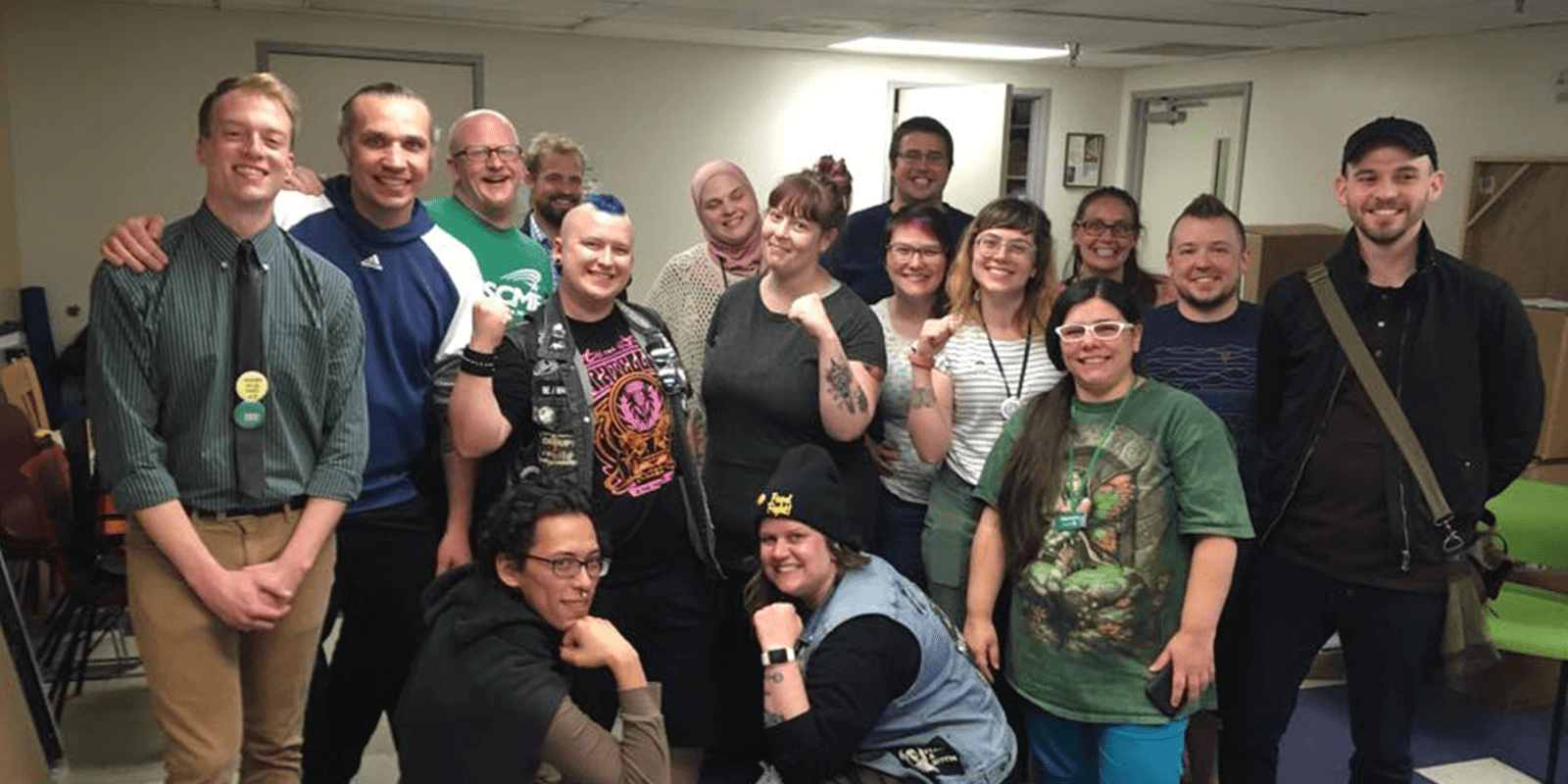Since the 1960s, Outside In has been an integral part of Portland, Oregon’s, social services thanks to building one of the region’s largest homeless programs. Now, the hardworking behavioral health professionals who work at Outside In are among AFSCME’s newest sisters and brothers.
Over two days last week, workers at Outside In voted to form a union with Oregon AFSCME Council 75. A total of 128 workers will make up the bargaining unit, with the majority coming from Medical and Youth Services.
Outside In workers provide vital services to youth who are dealing with addiction, homelessness, and behavioral health issues. They provide services ranging from primary care to counseling, and even do tattoo removals, and work with youth who need job training and housing.
“Throughout this entire process, our whole goal in unionizing has been client driven,” Eddie Charlton, an operation assistant at Outside In’s health clinic, told the newspaper Street Roots.
Workers began talking about forming a union following a worksite stabbing that left two staff members wounded. This was preceded by numerous calls from workers to resolve a host of safety issues. They began organizing in earnest in January and reached out to Oregon AFSCME, which represents more than 2,000 behavioral health workers in the state.
Charlton and his co-workers wore buttons and stickers reading “Together for our clients” to make it clear that solving the area’s mental and behavioral health crisis includes supporting the professionals providing that care.
Workers at Outside In are also following a national trend of workers, particularly millennials and low-wage workers, who are joining unions to have a greater say in their working conditions. Outside In’s model will look familiar to those versed in non-profit work, where highly educated workers are paid poverty wages and have little say in the care of their clients. All the while, those at the top earn salaries that are high enough to put them among the economic elite.
Workers at Outside In hope to limit turnover as high as 40 percent a year by ensuring that they are paid livable wages. Workers will also seek to improve safety conditions and establish a better process to advise and advocate for client-care improvements.
These new AFSCME members are part of the growing United We Heal movement, which seeks to raise standards in the behavioral health industry across the country. The Outside In vote came a day after activists, including Oregon AFSCME Executive Director Stacy Chamberlain, were arrested while participating in a peaceful sit-in in support of Volunteers of America (VOA) Oregon behavioral health workers bargaining their first contract.
